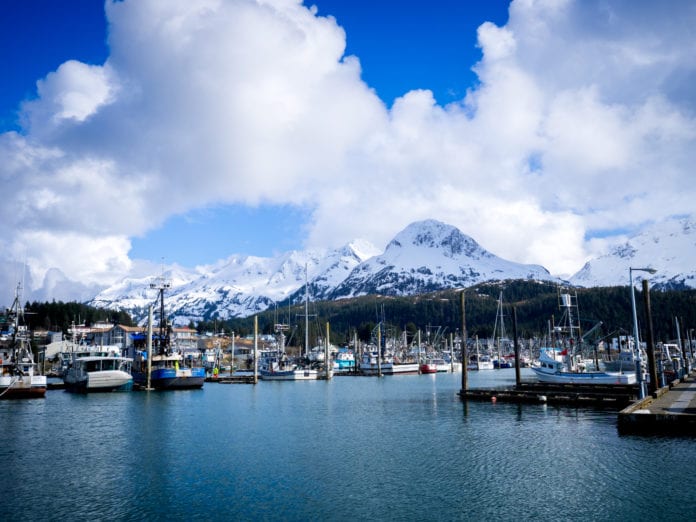Oceanography professor Russ Hopscroft of the University of Alaska Fairbanks will deliver a keynote address on Monday before the 2024 Alaska Marine Science Symposium (AMSS) on exploration of zooplankton deep in the Gulf of Alaska.
While the surface waters of the Gulf of Alaska have been studied for decades, communities in deeper water are virtually undescribed except for a few keystone species, Hopscroft notes in the abstract on his upcoming presentation. In 2016, he was part of a team that undertook an expedition that extended the Seward Line to the Giacomini and Quinn Seamounts of the Gulf some 200 miles offshore, sampling from the ocean’s surface the abyssal plains at 4 kilometers of depth to describe their patterns of biodiversity.
Seamounts are large submarine landforms that rise from the ocean floor without reaching the water surface and thus are not considered islands, inlets of cliff rock. They are typically formed from extinct volcanoes that rise abruptly, and are usually found rising from the seafloor 3,300 to 13,100 feet in height. The peaks are often found hundreds to thousands of meters below the surface, and are therefore considered to be within the deep sea.
His presentation is to outline the tools used from plankton nets to Remotely Operated Vehicles (ROVs), with analyses that encompass classical morphology, video recordings and molecular identification.
His presentation is to conclude with a discussion of plans for a follow-up cruise in May of 2024.
Earth’s oceans contain more than 14,500 identified seamounts.
The keynote addresses, beginning early Monday afternoon, also include presentations by Kathy Kuletz, now retired from the federal Migratory Bird Management program and affiliated with U.S. Fish and Wildlife, on a seabird’s view of Alaska Oceans; and Serena Alstrom Fitka, executive director of the Yukon River Drainage Fisheries Association, will speak of the importance of incorporating traditional knowledge into western society.
The following day will be devoted to the Gulf of Alaska Plenary Session, with presentations on Gulf climate and oceanography, fish and fish habitat, seabirds, marine mammals, humans and ecosystem perspective.
The plenary session on Wednesday, Jan. 31 will focus on the Arctic, and Thursday’s plenary on the Bering Sea and Aleutian Islands.
The symposium website includes all details of the gathering, including abstracts of presentations.















